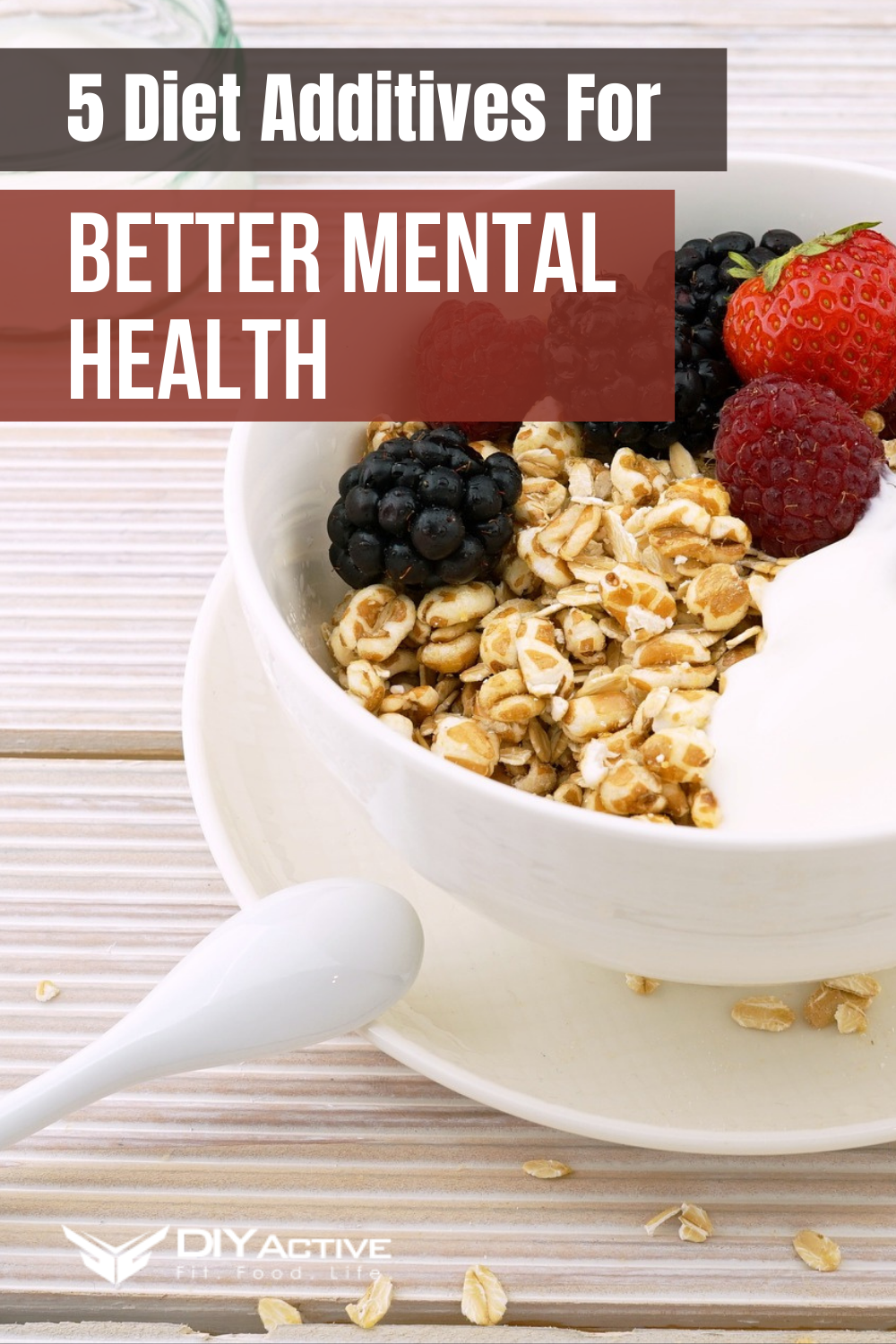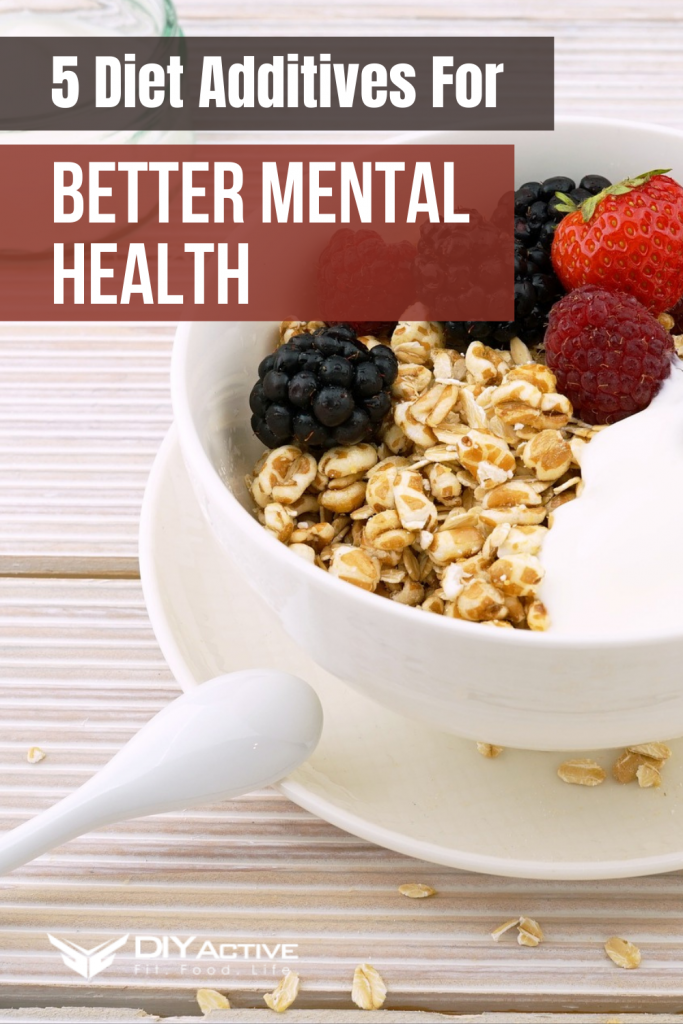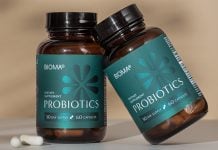
Diet Additives For Better Mental Health
Most of us live in a fast-paced environment saturated with stress. We have to balance between multitasking and burnout at work. At home, we deal with loads of dirty dishes and thick layers of dust.
Try These Diet Additives To Improve Your Health
We handle stress in a traffic jam, when paying debts, or feeding a crying baby in the middle of the night. All these conditions overload our brain and nervous system. As a result, over 260 million people across the globe have depression.
So how to protect yourself from daily distress? Some of you might take antidepressants. But you can also improve your mental health with safe and beneficial diet additives and supplements.
1. Omega-3 Fatty Acids
Omega 3 fatty acids are essential for your body to function correctly. Eicosapentaenoic acid (EPA) and docosahexaenoic acid (DHA) are the most biologically active and beneficial omega-3 components.
What foods contain them? Sea fish, chia seeds, linseed oil, and nuts are rich in omega-3 fatty acids. But the problem is that most people don’t eat enough of these foods, while your body can’t synthesize these fatty acids on its own.
Many studies revealed that people with depressive symptoms have low omega-3 blood concentrations. That is, there is a direct link between depression risks and omega-3 deficit.
As omega-3 supplements are advised for general well-being, they can also help you cope with depression, attention deficit hyperactivity disorder (ADHD), and anxiety.
2. Vitamin B12
Vitamin B12 is essential for your nervous system, DNA, and blood. It helps your body synthesize DNA, protects your nerve cells, and prevents anemia. These are foods reach in this vitamin:
⦁ Beef and beef liver
⦁ Tuna
⦁ Clams
⦁ Salmon
⦁ Milk
⦁ Eggs
Researchers also associate Vitamin B12 deficiency with increased irritability, depression, and reduced cognitive function. So if you feel tired, exhausted, and depressed, you may need to take Vitamin B12 supplements, especially if your diet excludes the “good mood food” mentioned above.
 3. CBD
3. CBD
CBD is a component of the cannabis plant. While many people use cannabis as a mood-enhancing herb, it involves adverse health effects in the long run due to its psychoactive properties.
They come from delta-9 tetrahydrocannabinol (THC), which is the main ingredient of recreational marijuana. CBD is non-intoxicating and non-addictive.
Studies demonstrate that CBD regulates mood, sleep, pain response, and immune function by interacting with cannabinoid receptors in your body.
Researchers also revealed that CBD has pain-relieving, sleep-inducing, anti-inflammatory, anti-seizure, and antioxidative properties. Most importantly, it alleviates mental health conditions, like depression, anxiety, and post-traumatic stress disorder (PTSD), and sleep disorders.
Although more research in this direction is required, what scientists already know about CBD is that it protects nerve tissues, relieves neurological inflammation, and helps your body dissolve reactive oxygen species (ROS) from your cells (including brain cells).
So you can take it as a standalone mood booster or add it to your favorite meals containing beneficial omega-3 fatty acids and vitamins.
An important note: the CBD market lacks regulation. Due to this, you have to select CBD brands attentively and opt for well-established ones like CBD American Shaman or Charlotte’s Web. Also, a bit of research is required.
For this, you should check CBD American Shaman reviews, Charlotte’s Web review articles, check certificates for analysis for products you want to buy. But CBD is worth the effort since it has a better safety profile than most drugs while demonstrating equal efficiency.
4. Magnesium
Magnesium is a vital mineral needed for thousands of chemical reactions in the human body. It ensures that your cells, including neurons, work correctly.
It has antidepressant and soothing effects on your nervous system. Some studies, however, don’t demonstrate significant evidence that magnesium supplementation helps for depression, but their findings are criticized for inaccuracy.
Meanwhile, an extensive study review published in 2020 suggests that magnesium deficit correlates with depression. So if you have anxiety, depression, or suspect these conditions, you may want to take magnesium supplements or prepare depression meals rich in this mineral.
5. Probiotics
As you see, most mod-inducing supplements we mentioned before come from foods we don’t eat enough. But what if you eat like a horse, and you must have a surplus of vitamins, minerals, and omega-3 fatty acids?
Recent findings indicate that the problem might come from microbial dysbiosis when harmful bacteria prevail in your digestive tract.
As a result, your body doesn’t absorb essential nutrients that come with a balanced diet. At this point, probiotics might save the day.
Using probiotics will help you populate your gut microflora with beneficial bacteria. Many studies demonstrate that prolonged probiotic supplementation reduces anxiety and depression symptoms.
Wrap-Up
These days, researchers reveal more and more evidence for the link between diet quality and mental health. Thus, most common mental conditions, like anxiety, depression, ADHD, might, at least, partially result from an insufficient diet.
Therefore, dietary supplements, like omega 3, magnesium, Vitamin B12, CBD, and probiotics, can alleviate depression, anxiety, and other mental health issues aside from supporting general health.
- 5 Diet Additives For Better Mental Health - August 3, 2021

 3. CBD
3. CBD

